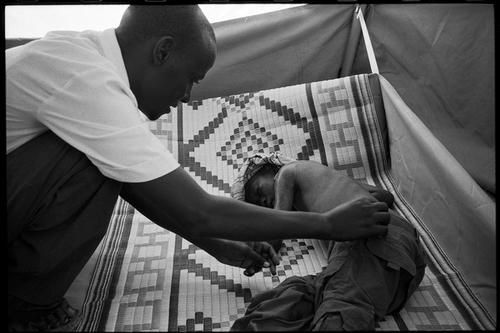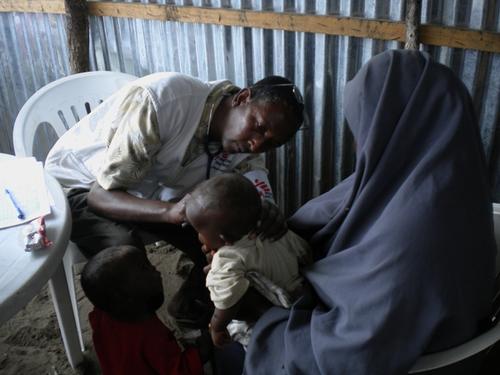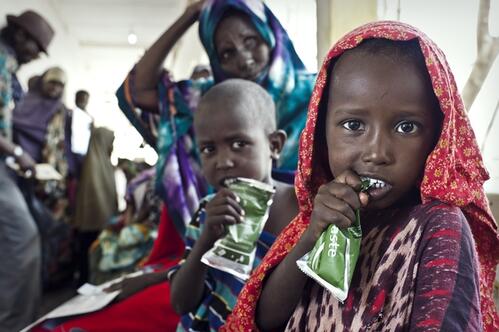Khadijo came to the Médecins Sans Frontières (MSF) supported hospital two days ago with six of her children. All seven of them have measles. She says she knows the signs for measles but she didn’t come in earlier because she lives too far away and transport is expensive. She first tried traditional medicine – applying burns to various areas of the body - and only came to the hospital when her youngest child, a one-year old boy named Jakob, died. Left untreated, measles can be deadly, especially for young children. With in-patient medical care most patients survive, but the best gains are made in prevention through vaccination.Measles is a major killer in Somalia and it’s easily preventable. Vaccination - with high coverage and proper vaccine management - is critical to saving lives in Somalia. MSF asks all authorities to support emergency vaccination programmes throughout Somalia.
All over Somalia, measles has been flaring up, especially over the past six months. MSF has treated 4,288 patients for measles since January, the vast majority of them children, in its health centers across Somalia1. Even in areas where medical authorities say vaccination campaigns are effective, MSF is still treating dozens of patients every day. In Burco, an area unaffected by the conflict that routinely has vaccination campaigns, MSF has received 586 measles patients since the start of the year. Such prevalence could not be possible if there was adequate vaccination coverage.
Vaccination requires not only good coverage, which should reach over 90% to stem the spread, but also requires that the vaccines are transported and stored at the right temperature. That could help explain outbreaks in areas declared vaccinated. Even more worrying, though, are areas where authorities refuse vaccination outright. In several locations MSF is denied permission to vaccinate with the explanation that higher up authorities simply won’t allow it.
Measles has raged across Somalia for the past few months and many of MSF’s wards have been full of infected children like Khadijo’s. She sits on a floor mat in MSF’s makeshift measles ward surrounded by her six children waiting for them to be well enough to travel. Her family was hit, like most, by the drought last year. They lost about half their livestock but they were recovering until measles hit their village.
In October 2011, two MSF aid workers, Montserrat Serra and Blanca Thiebaut, were abducted in Dadaab refugee camp in Northern Kenya while carrying out emergency assistance for the Somali population. They remain in captivity, and MSF, while still responding to acute crisis requesting live-saving interventions, has put on hold the opening of any non-emergency projects in Somalia until their release.
1 Total number of patients treated for measles in 4 regions over January – May 2012 period (305; 467; 237 and 3,222 cases) and in 1 region over January – April 2012 period (57 cases).






